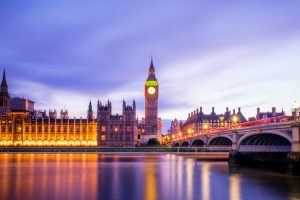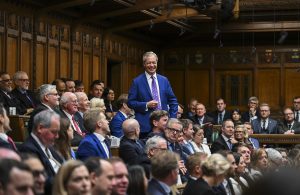The Government has announced plans to make new online safety laws in collaboration with industry, charities and the public [1].
The announcement came following the publication of responses to the Internet Safety Strategy Green Paper Consultation. [2] As the Government continues to develop the Digital Charter, the responses to the consultation will feed into new initiatives and laws to make digital life a safer place.
The consultation asked respondents their views on a number of issues, including: the prospect of introducing a social media code of practice, transparency reporting and a social media levy; technological solutions to online harms; developing children’s digital literacy; support for parents and carers; adults’ experience of online abuse; and young people’s use of online dating websites/ applications.
Three main issues were highlighted in the responses to the consultation:
- Online behaviours too often fail to meet acceptable standards;
- Users can feel powerless to address these issues;
- Technology companies can operate without proper oversight, transparency or accountability, and commercial interests mean that they can fail to act in users’ best interests.
As a result, the Government have stated in their consultation response that they intend to publish a White Paper before the end of this year to set out more definitive steps to tackle these three issues surrounding online harms and safety.
The White Paper will report on issues such as their progress in the review of platform liability for illegal content; it will also respond to the first stage of the Law Commission Review of abusive communications online; and on how the Government will work with the Information Commissioner’s Office on the age-appropriate design code which forms a part of the Data Protection Bill.
New policy ideas the Government is considering following the consultation include:
- age verification to assist companies to enforce terms and conditions;
- policies aimed at improving children and young people’s mental health,
- including the impact of screen time;tackling issues related to live-streaming; and,
- further work to define ‘harmful content’.
Charities such as the NSPCC, The Children’s Charities’ Coalition on Internet Safety (CHIS), 5Rights, The Children’s Media Foundation, the Royal Foundation’s Taskforce on the Prevention of Cyberbullying, the Coalition for Children Online, and the European Commission’s Alliance to Better Protect Children all responded to the survey helping the Government to form its response.
Other respondents included Facebook, Google and Twitter. The Government however was disappointed that of the thirty-nine platforms that were identified by the NSPCC’s NetAware programme as the main sites, apps and games that children use the most, only five of those companies responded to the consultation (Facebook, Google, Oath, Microsoft and Twitter representing 12 of the platforms). The Government has stressed therefore that they are keen that all platforms play their part to making online life safer, particularly for children.
The Government stated in their consultation response that:
‘Cyberbullying and intimidating behaviour online, which can have negative impacts on mental health and well-being, particularly among children, is now all too commonplace. Despite a range of voluntary initiatives, good work by a range of charities and technological innovations, online abuse remains an issue for millions of citizens. Therefore we are taking further steps to tackle this behaviour, and ensure that offline rules apply online too.’ [3]
The Secretary of State for Digital, Culture, Media and Sport Matt Hancock said:
‘People increasingly live their lives through online platforms so it’s more important than ever that people are safe and parents can have confidence they can keep their children from harm. The measures we’re taking forward today will help make sure children are protected online and balance the need for safety with the great freedoms the internet brings just as we have to strike this balance offline.’
No date has been set for the publication of the White Paper, but details are expected to be announced in due course.
[1] New laws to make social media safer, Department for Digital, Culture, Media and Sport, 20 May 2018, link
[2] Internet Safety Strategy green paper: consultation outcome, Department for Digital, Culture, Media and Sport, 22 May 2018 link
[3] Government response to the Internet Safety Strategy Green Paper, HM Government, link



